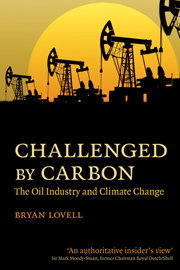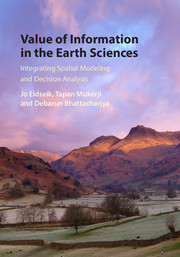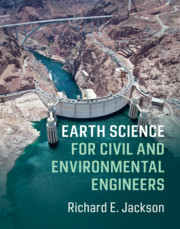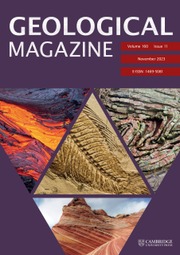Challenged by Carbon
Is there a low-carbon future for the oil industry? Faced with compelling new geological evidence, the petroleum industry can no longer ignore the consequences of climate change brought on by consumption of its products. Yet the global community will continue to burn fossil fuels as we manage the transition to a low-carbon economy. As a geologist, oil man, academic and erstwhile politician, Bryan Lovell is uniquely well placed to describe the tensions accompanying the gradual greening of the petroleum industry over the last decade. He describes how, given the right lead from government, the oil industry could be environmental saviours, not villains, playing a crucial role in stabilising emissions through the capture and underground storage of carbon dioxide. Challenging prejudices of both the environmentalists and the oil industry, Lovell ultimately assigns responsibility to us as consumers and our elected governments, highlighting the need for decisive leadership and urgent action to establish an international framework of policy and regulation.
- Discusses the role of the oil industry in climate change, presenting food for new thought, not sustenance for existing prejudice
- Explains why we cannot yet manage without fossil fuels, but also how we can cope with the consequences given political leadership to facilitate the transition to a low-carbon economy
- Written with authority from the perspective of fifty years of vigorous international involvement in research, teaching, industry and politics
- Brings a new and essential geological perspective on understanding and coping with climate change
Reviews & endorsements
"The author’s enthusiasm leaps out of every page and the result is a very readable, jargon-free and informative book on climate change. As a geologist he sets the present in the context of past changes. Anecdotes, personal reminiscences and clear science will captivate and inform the general reader and may well offer new insights to the specialist. A really good read.” - Lord Oxburgh, House of Lords Science and Technology Committee
“As a geologist Lovell gives an authoritative insider’s view of the oil industry's various approaches to climate change and the contribution industry can make through carbon capture and storage. Enlivening the book with geological insights, he also maps out the government frameworks needed to meet the climate challenge.” - Sir Mark Moody-Stuart, former Chairman of Royal Dutch/Shell and Anglo American plc
"Bryan Lovell's voice is a new one on the climate change stage. Compelling, lucid, and enjoyable - this book demystifies geology for the non-specialist and elucidates how geologists and the oil industry can contribute solutions to the problem of global climate change." - Professor Robert Socolow, Princeton University
"Bryan Lovell has produced a remarkable book which draws on a lifetime of experience in the oil industry to identify new and creative ways of dealing with the challenge of global warming. This is a book which deserves the widest audience not just within the scientific community and the energy industry but also at the highest levels of policy making" - Nick Butler, University of Cambridge and Senior Policy Adviser, 10 Downing Street
"Bryan weaves a compellingly entertaining story -- the Oil Industry's change in attitude to carbon is well documented, as is the capability for "putting the carbon back". The book then highlights the author's frustration at the continued absence of an international regulatory regime that is capable of addressing the real objective function." - Dr David Jenkins, Director of BHP Billiton plc and former Director Technology BP plc
“The central theme of Challenged by Carbon, that the oil and gas industry is a vital part of the solution as we transition slowly to a lower carbon energy future, is one that I heartily endorse.” - Professor Scott W. Tinker, University of Texas at Austin, State Geologist of Texas and former President of the American Association of Petroleum Geologists
"This is an unusual book, intertwining two stories, one of them 55 million years old, and one less than 55 years old. I've not heard either story told before, and both are fascinating." - Professor David MacKay, Chief Scientific Advisor of the Department of Energy and Climate Change
'"Climate change fatigue' is said to be an ailment slowly spreading through the media. As Copenhagen takes over the headlines, Bryan Lovell's lively new book — peering into the doubts, concerns and prejudices that have dogged climate negotiators — is an instant tonic for this malady." - Nature
"This book speaks to the experts with an authoritative voice" - The Times
"In an engaging way, Bryan Lovell’s book is dealing with the serious issue of how to double the amount of energy supplied by the middle of this century with half the carbon dioxide. ... the continued emission of carbon dioxide, even just at the present rate, is a serious problem and that a large degree of cooperation and incentives will be required. It is a thought provoking important book dealing with one of the most important issues of our time, that should be read. - Professor Miriam Kastner, Scripps Institution of Oceanography, La Jolla, California
"In summary, this is an important book which should be read by anyone concerned about the problems (and possible solutions) of global warming. As a bonus, it’s very well written and interesting to read throughout—highly recommended." - William R. Green, The Leading Edge
"The three main problems with climate change are: it is multidisciplinary and few people have the scientific expertise to understand all its interwoven strands; second, anthropogenic climate change is not universally accepted and third, the world is now beginning to suffer from “climate change fatigue”. Bryan Lovell is well placed to overcome these problems. ... This is a thought-provoking book, which incorporates much of the latest research." - The Geological Society
"...leads the reader on a personal journey of climate, carbon, and politics. ...a highlight is its treatment of the science and implications of the Paleocene-Eocene Thermal Maximum (PETM), a warming event that was caused 55 million years ago by the rapid release of a quantity of carbon comparable to the amount humanity is now releasing by consumption of fossil fuels. Among the possible triggers for the PETM was an uplift of the North Sea that may have released methane from hydrates as it created the sandstone formations from which oil is drawn. Lovell skillfully exploits that irony, weaving it into his career experiences as an academic and topnotch petroleum geologist involved in oil discovery, the scientific understanding of the PETM, and climate-policy debates at the highest levels of the global oil industry." - Physics Today
"This is an encouraging book for it demonstrates the engagement of some leaders in the oil and gas industry in not only recognizing the threat that is climate change but also in wanting to put their own expertise and resources into being part of the solution. It gives one example of how it is possible to be an energy power and to be environmentally responsible. As such, this book needs to be read in the boardrooms of Calgary and the offices on Parliament Hill." CMOS Bulletin
"...this is an important book, which should be read by anyone concerned about the problems (and possible solutions) of global warming. As a bonus, it's very well written and interesting to read throughout - highly recommended." The Leading Edge
Product details
November 2009Paperback
9780521145596
230 pages
228 × 152 × 11 mm
0.37kg
66 b/w illus. 8 tables
Available
Table of Contents
- Acknowledgements
- Preface
- 1. Geologists on the road to Kyoto
- 2. A crucial message from 55 million years ago
- 3. An Atlantic divide in Big Oil
- 4. What is the oil industry supposed to do?
- 5. The size of the problem and the scale of the answer
- 6. Safe storage: from villain to hero
- 7. Taking it a decade at a time
- 8. The proof in the Puddingstone
- References
- Index.







